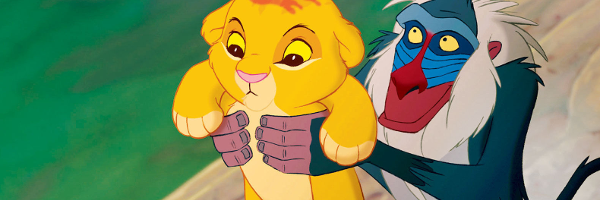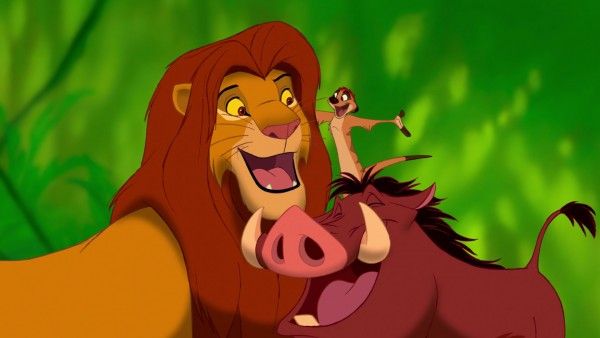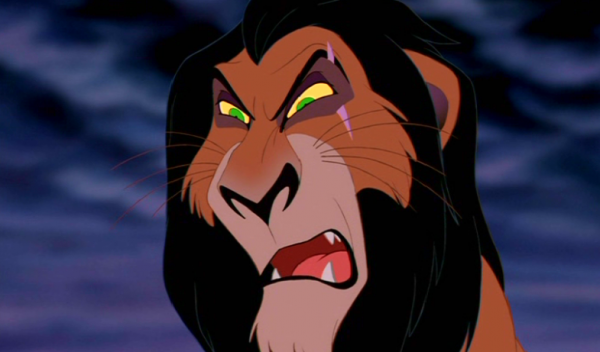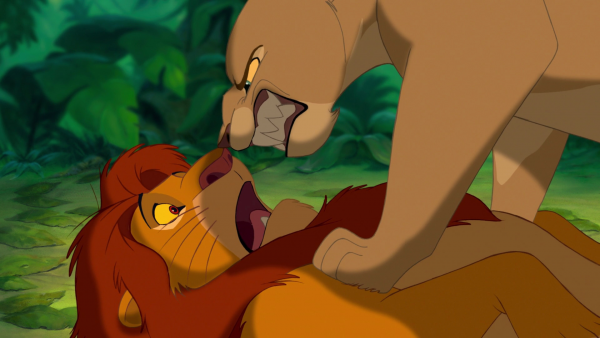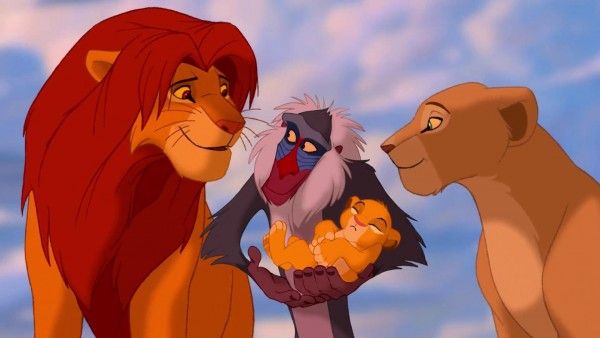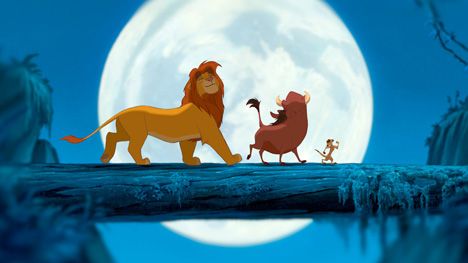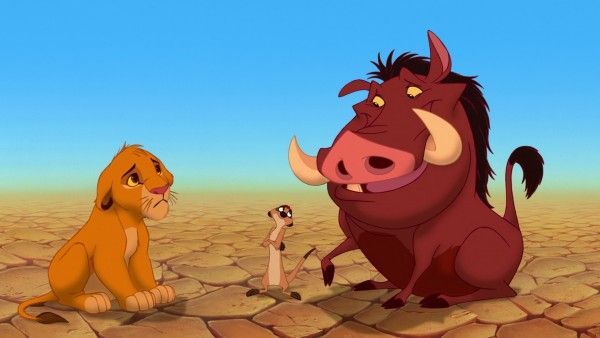Who doesn't love The Lion King? For many of us, Disney's 1994 animated classic was a seminal filmgoing experience; a childhood favorite from a golden age at Walt Disney Animated Studios. But the film was almost drastically different from the final version we ended up with, in quite a few ways.
Of course, most films go through an evolutionary creative process as the pieces fall into place for the filmmaker's vision, but Disney's animated films have a particularly fascinating path thanks to the intensely collaborative process and they can end up in almost a completely different place from where they started. Such is the case with The Lion King, the Oscar-winning, box office-dominating animated hit. With The Lion King making its Walt Disney Signature Collection debut on Blu-ray and Digital HD this year, co-director Rob Minkoff producer Don Hahn spoke with Collider about the film and its proud legacy.
"Really early on, there was a version that was very earthbound, very much about animals in the savanna and didn't have Mufasa's ghost. Didn't have any of that at all," Hahn explained.
Minkoff continued, offering an in-depth description of what we would have seen in that "earthbound" version of the film.
Mufasa got killed. Simba never left Pride Rock. He just stayed on Pride Rock. Timon and Pumbaa were childhood friends. So they were at Pride Rock. Rafiki was part of the community of Pride Rock. Was not the same witch doctor living on his tree as a hermit. And there was a stampede, and Mufasa got killed by Scar, but then as soon as Simba took over as a teenager, Scar was acting as his regent, the prince regent. So he was kind of running the show behind the scenes, but Simba was there, acting like a terrible, teenage wastrel guy,
So again, it was trying to tell the story about stepping up to responsibility, but not ... But the bigger story moves of leaving the pride land, meeting Timon and Pumbaa as these outcasts characters, and kind of adopting a new way of life and turning his back completely. Again, it wasn't a different story. It was just a stronger way of telling the story that everybody had decided they wanted to tell.
Minkoff also explained how The Lion King evolved from the basic pitch, which was simply to do "Bambi in Africa," to become the Hamlet-inspired, classic heroes journey that emerged in the final film.
That was how it started. And the guy that did it was again, Charlie Finkins, head of development, who said, "We could do Bambi, but set in Africa with African music." And Michael Eisner's response was, "If you could figure out a way for Bambi not to get eaten, maybe we'd have something." And so that's the beginning. You go, "Well, how do you make that movie?"
And then, one of the other amazing stories was, Jeffrey Katzenberg had an experience, an early experience growing up as a guy working for mayor John Lindsay in Chicago. And was in a serious predicament, where he was basically asked to get out of town, and instead of getting out of town, he stayed and kind of faced the music, and said, "I believe that what I did was right, and I'm not gonna run from it. I'm gonna stand up to it." For him, that became like, that's the defining [moment]. That's the movie. That's what we need to make this movie about, is kind of taking a stand against what everyone thinks you should do, instead of running away, it's standing up to your responsibility. So that was again, a cornerstone. Then, when we pitched a revamped version of the movie, which included Rafiki, who's the family witch doctor, and Timon and Pumbaa as the outcasts, and all the ... The end, Mufasa coming back as a ghost, all that was now part of the story. We were in the meeting, and Michael Eisner, the first thing he said was ... because it was called King of the Jungle. He said, "Maybe this could be King Lear." We're like, "King Lear? That's about a father with three daughters?" We're like, "That's not King Lear." Then Maureen Donly, who had produced Little Mermaid, in the back room, goes, "No, it's Hamlet." And everyone goes, "It's Hamlet!" And we're like, "Yes! It's Hamlet!"
There was also a bit of a smaller change, one that affected one of the film's most iconic songs, the love ballad "Can You Feel the Love Tonight", which ended up taking home an Oscar for Best Original Song. Wanting to buck against the expectation of the requisite Disney love song, Minkoff and his team decided to have Timon and Pumba, Simba’s goofy sidekicks sing the love song. Just one problem. That really rubbed Elton John the wrong way.
Ernie Sabella, the actor who voiced Pumba (and continues to in shorts, sequels, and TV series), recalled, “We sang originally can you feel the love tonight. Nathan and I sang the whole song.” He continued with a laugh, “And then I saw a film clip of Elton John saying, ‘I don’t want my love song sang by a big stinking warthog!'”
And that, my friends, is how we ended up with the film that helped defined the childhood of a generation and the love song you can never quite get out of your head.

